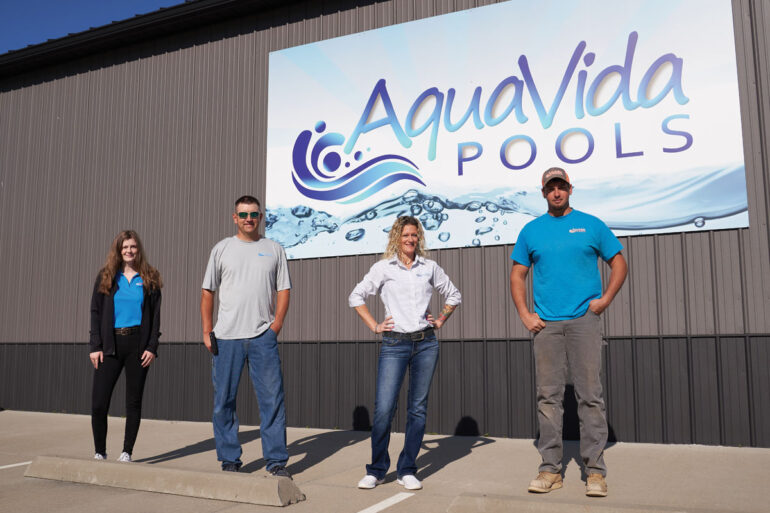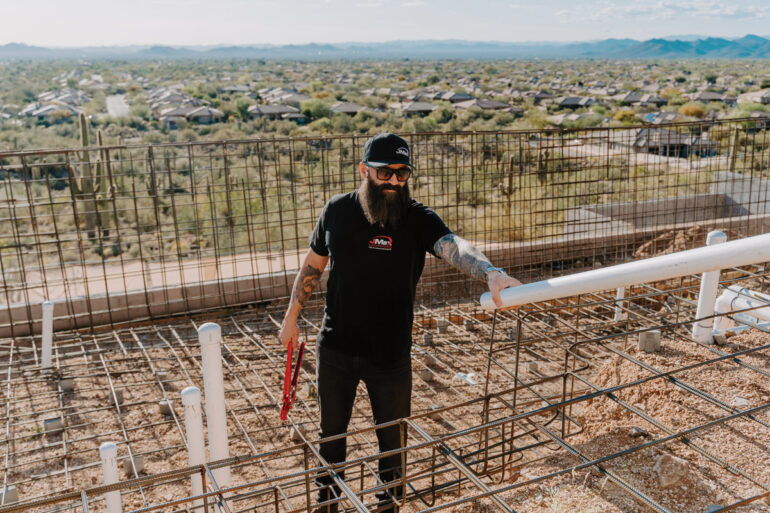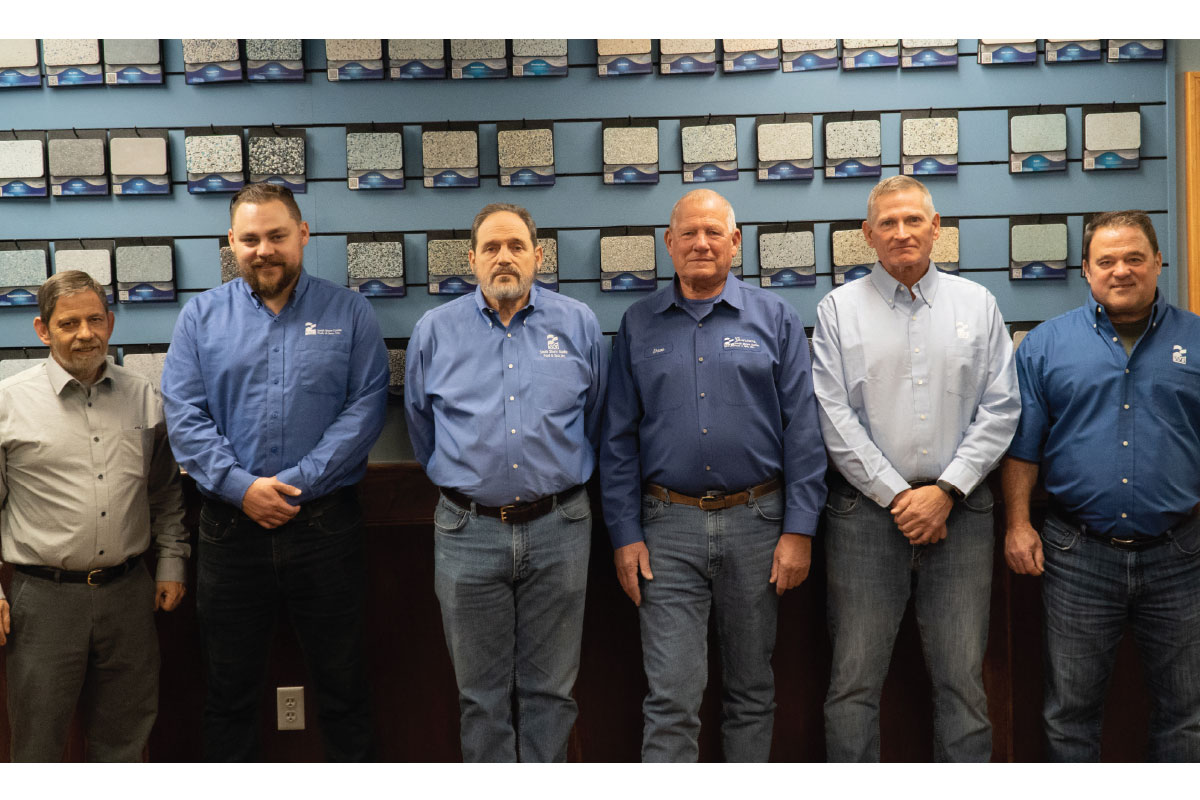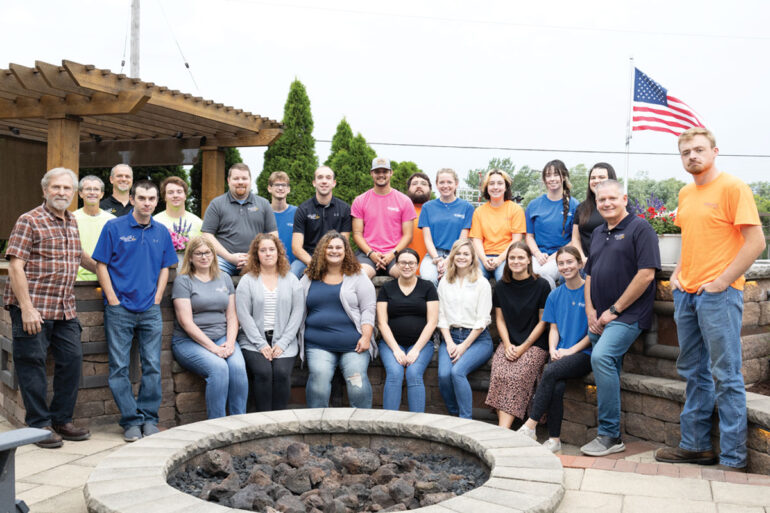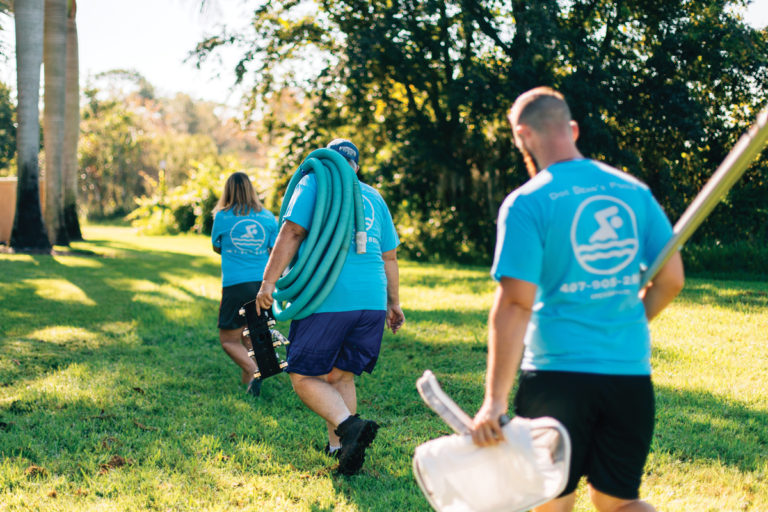Centennial Construction
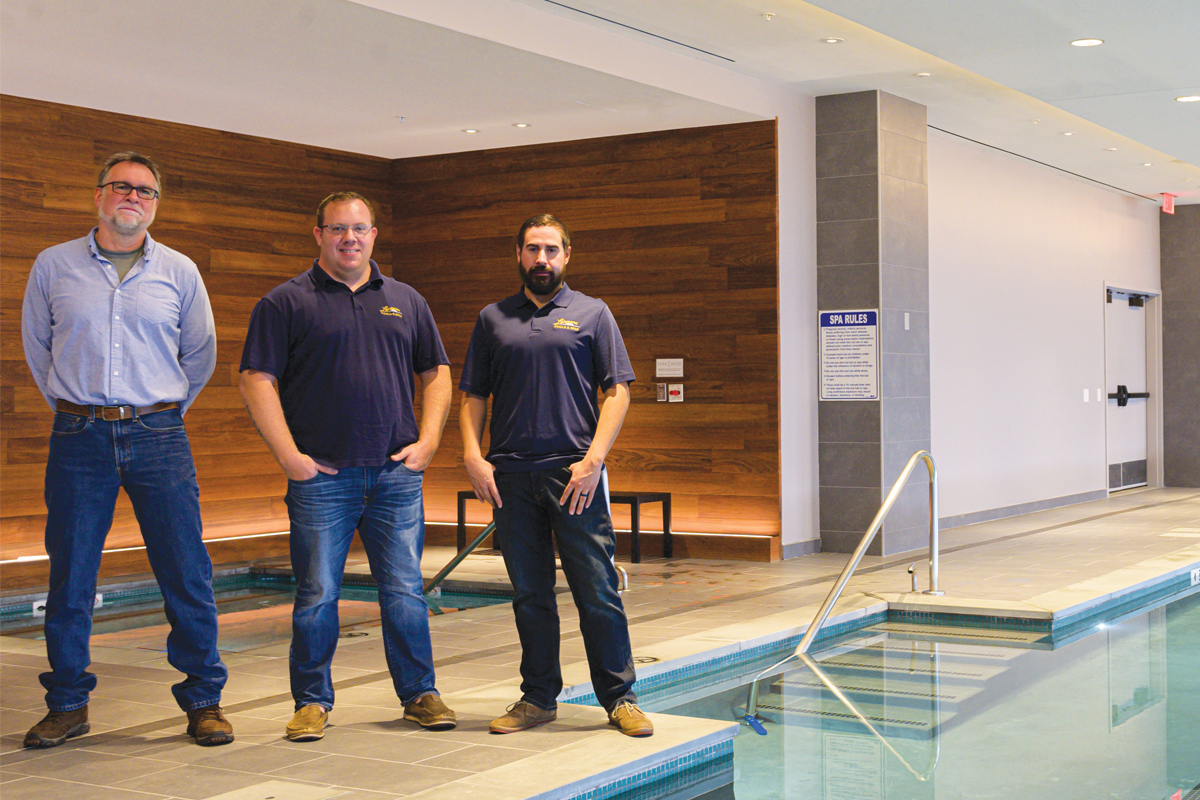
Victor L. Lehmann immigrated to the United States from Germany in the early 1900s and started V. Lehmann Construction Company in 1918, doing mostly commercial work. His son, Victor S. Lehmann, joined the company in the 1940s after serving in World War II. The company started building residential homes too, which led to an accidental move into the swimming pool industry.
Lehmann Construction had an excavator that, when not in use, Victor L. would rent to homeowners by the day with an operator. For one particular request, Victor L. met with the homeowner to see what the operator needed to do. Current owner and president, Victor A. Lehmann (who goes by Vic), recalls the story: “[The homeowner said] ‘We wanted to build a swimming pool and we don’t know what to do, but figured digging a hole was the first step.’ ”
That was 1955, when residential pools were just starting to become popular. Lehmann Construction helped the homeowner figure it out and built the swimming pool. The following year, Vic’s father attended the national pool convention in New York City, learning where to get pumps, filters, liners — all the elements necessary to build a pool. By the 1960s, the company was exclusively building pools, with V. Lehmann Construction, Inc., doing business as Lehmann Pools and Spas.
“We’re the oldest pool contractor in New Jersey,” says Vic, who joined the company in 1979 right out of high school, starting at the bottom. The eldest Lehmann passed in 1964 when his grandson was just two years old — and Vic’s father, Victor S., retired in the early ’90s, leaving Vic to be the third-generation owner of the company.
“My father built almost every type of swimming pool out there, but the one thing he never did was gunite or shotcrete,” Vic says. “I was the one who brought that in. I really like the artistic abilities of what you can do with the product. And that’s the only type of pool we do now.”
While Vic’s father was the one to transition the company to building pools only, Vic brought general contracting back into the mix. The company will now renovate the whole backyard, including building pool houses and outdoor kitchens. Commercial projects have found their way back as well, with the company building pools on rooftops and parking garages. Vic is on the PHTA committee working to create standards for these rooftop builds.
A Great Team
Over the lifetime of the company there have been challenges, but goals have remained the same. “I wanted to build a company that would always provide the best quality we could to customers,” Vic says. “And I want to have an environment where the people who work here like working here and want to work here. It took me many years to get to the point where I have good people who are working for me, like it and are qualified and good at what they do.”
Service manager Steve Whetzel and construction manager Chris Koeppen are two such employees.
[letsinfoup]
Whetzel started in the pool industry right out of high school, too. He joined Lehmann Pools in March 2019 as a service tech, when he and his wife moved from Maryland to be closer to family, and was recently promoted to service manager. While there have been a few times he considered leaving the pool industry, he now sees it as a long-term career.
“I feel like it’s always looked at as not a real job — everybody’s like ‘Oh, you’re just a pool guy,’ ” Whetzel says. “At this point, I’m not going out and running a route and working on swimming pools but managing high-end work. We assist our construction department with the service of their builds. The work that we’re doing now takes trained professionals, it’s not just 15 minutes [per pool], they’re much more labor intensive and take 45 minutes to an hour each.”
Koeppen started in the pool industry in 2003 between college semesters. After obtaining a degree in small business management, he went full time into pool work. He worked for a few companies, landing the construction manager position at Lehmann Pools in 2016.
He says he’s learned a lot in the past four years, as the residential and commercial aspects of the company are now both evenly matched, requiring even more training for commercial pool builds. “We’ve done some really crazy projects that I’ve never seen done before,” Koeppen says. In addition to rooftop pools, the company has built large water features and even a 3,000-square-foot pool at the Vermella apartment complex in Union, New Jersey. It’s Koeppen’s favorite project so far: “We did a custom logo with fiberoptic lighting on the floor of the pool and perimeter lighting underneath the tile line throughout the whole pool,” he says. The company also created two different courtyard water features with intricate details, a labor-intensive project that took them about a year.
Another favorite is at Urby apartments in Stamford, Connecticut. “Both projects are beautiful, but the one in Connecticut is really show-stopping,” Koeppen says. “It has a wooden deck around it and can be elevated. It has stadium seating. It’s very cool.”
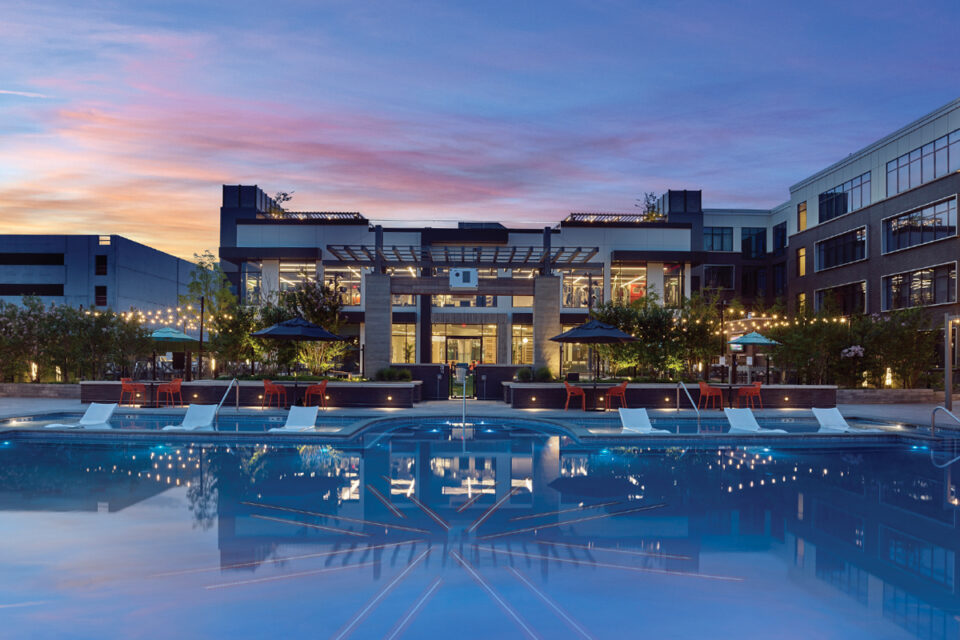
Pandemic Business Boom
With the increase in leads for residential pool builds during the pandemic, one might surmise that Lehmann Pools is seeing more residential projects right now, accompanied by extended lead times. But the company is particular about its projects and, as of this writing, its lead times for residential builds are only into July 2021. Several commercial projects were in the works before the shutdown, so space has also been set aside in the schedule for when those pick up again.
“We know there will be other commercial stuff [soon],” Koeppen says. “We have landscapers [for whom] we try to keep scheduling space available because we’re going to get those phone calls. We want to serve our clients we’ve been working with for 10 years.”
Vic is not only the company owner but also serves as the salesperson and designer for all of the pools — another reason why he’s particular about projects the company accepts. Before the pandemic, he was getting three to four calls a week about possible new projects; now, he’s getting more than he can handle.
“What we’re selling is not something where I can just go in there and say, ‘Here’s your choice: A, B or C’ and sign them,” Lehmann says of the custom design process. “And around here, the permit process is notoriously slow to begin with, and then add in the pandemic. We have work on our books where we started the permit process in August and September and are just getting permits [in November]. So, we’re at the point where, sadly, I can’t return all the calls we’re getting.”
What’s Ahead
Vic is working with NESPA and a local technical college and hopes to establish a pool trade school, setting a precedent for the industry that will spread across the nation. For a company to work on municipal pools in New Jersey, it has to have a union affiliation or be part of an apprenticeship program, “but there are no swimming pool industry options,” Vic says. “I had to join up with the plumbing union and, in that respect, I’m paying to have someone trained as a plumber when that’s not going to help the swimming pool industry. That’s several thousands dollars I put out each year just so I can bid on municipal projects.”
The idea is to add pool construction and service as an option at trade schools, just as welding, HVAC and electrical are available. “There’s people out there who don’t necessarily want to go to college,” Vic says. “Right now you can spend your last two years of high school learning how to be a plumber, electrician, HVAC person. But there’s nothing out there that would give you certification and training on how to be a pool person.”
Whetzel says his boss is trying to accomplish something important. “What I’m seeing here and across the country is that finding laborers is the hardest thing [for the industry],” he says. “Obviously this trade school would benefit us, but also the industry as a whole.”
On a personal level, Vic wants to see the company grow without any sacrifice in quality. He’s one of the most expensive pool contractors in the area, but that doesn’t bother him. “What will bother me is if you tell me that we did a bad job,” he says. For now, he’s going to keep designing the pools, but eventually wants to find someone he trusts to take over that process at the same caliber he has over the last several decades.
Admitting that there won’t be a fourth-generation owner of the company because he has no children and his siblings’ children are pursuing other careers, Vic recognizes that he’s likely building the team that will one day take over. “I’m probably never going to retire, but I want to get my company to the point that it’ll be able to operate and maintain itself without me being around,” he says. “The beauty of computers these days is that I can run my company from my office here, sitting at my desk, or I could run this from a beach somewhere in Mexico.”
Photography by Martin Abrahams
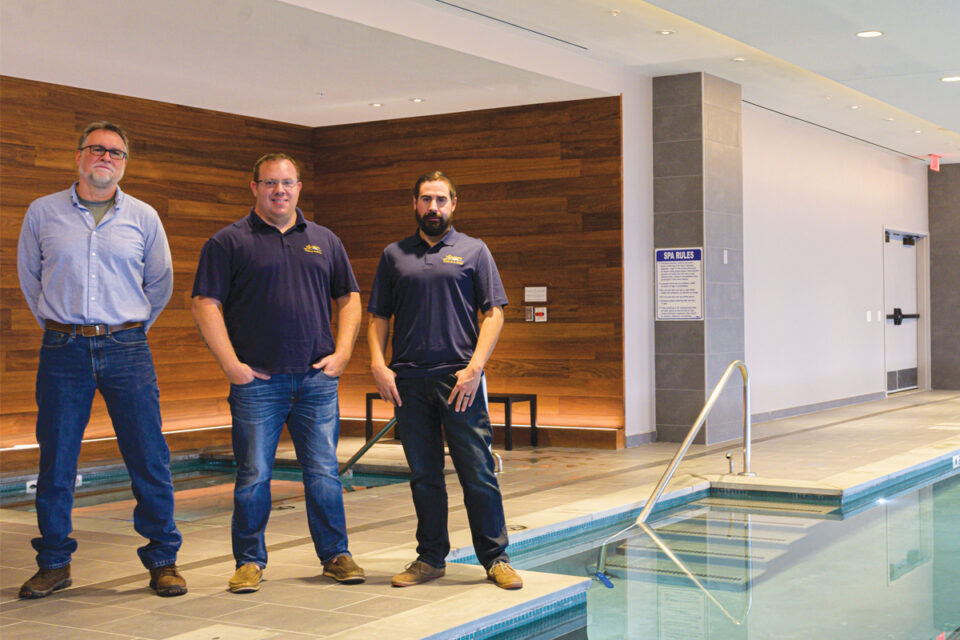
(left to right) Vic Lehmann, owner; Steve Whetzel, service manager; and Chris Koeppen, construction manager 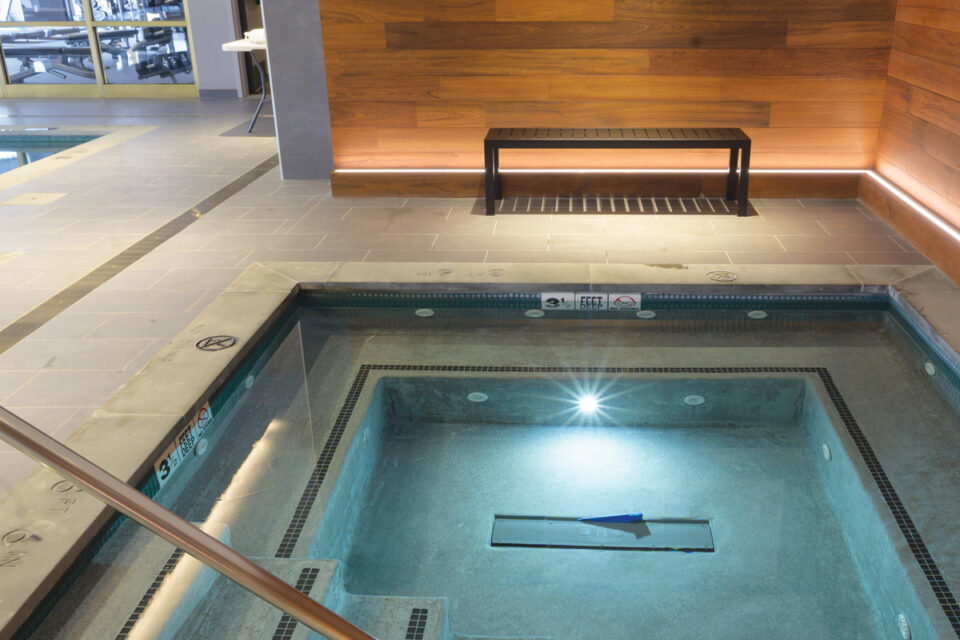
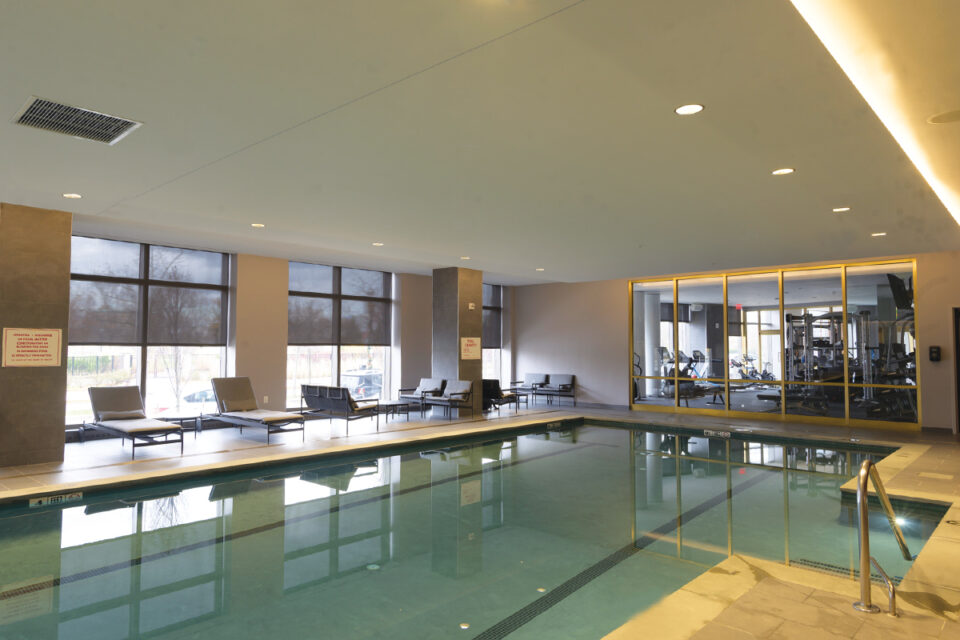
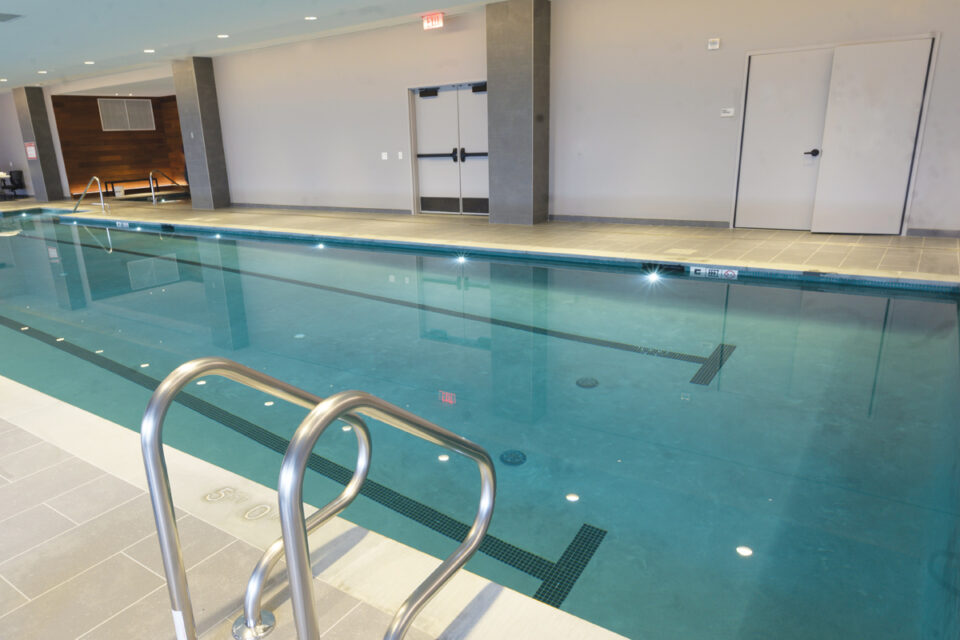
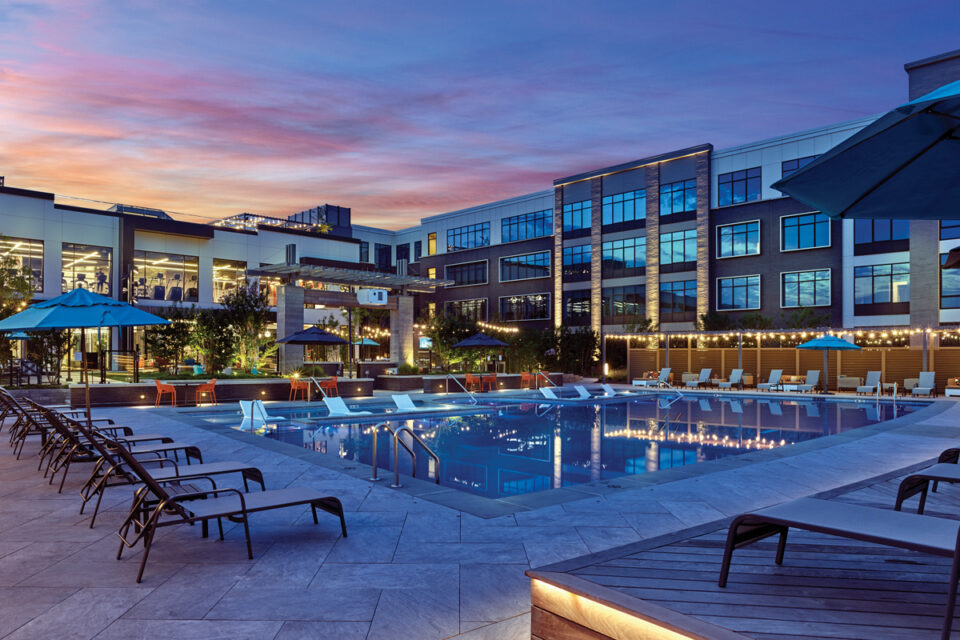
Photo: Vermella Union Luxury Apartments 
Photo: Vermella Union Luxury Apartments 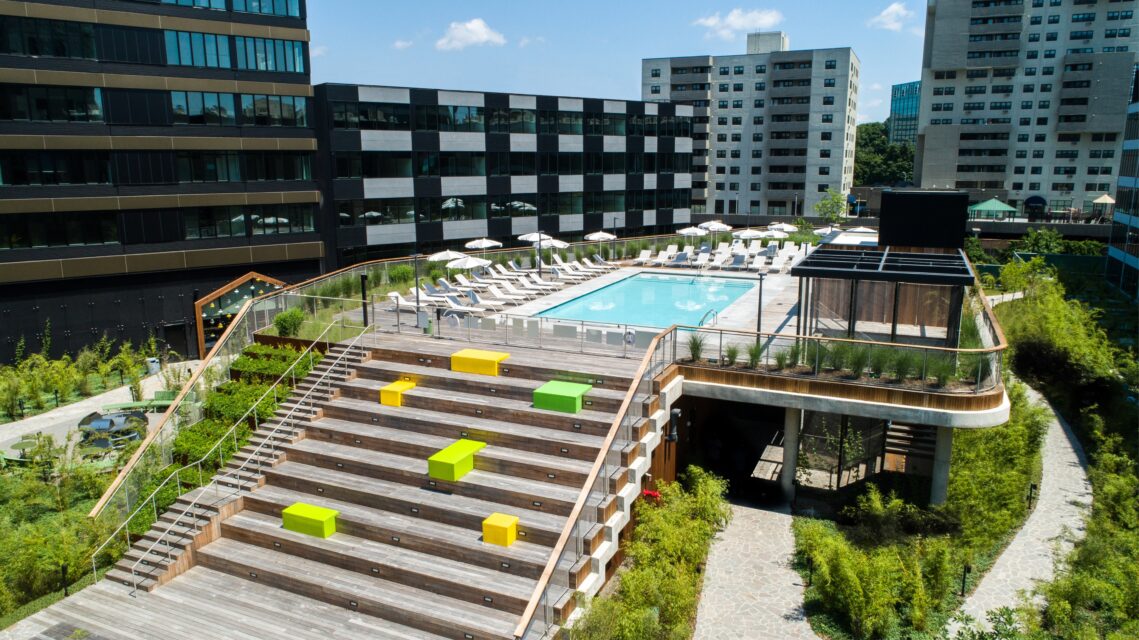
Photo: Urby apartments in Stamford, Connecticut 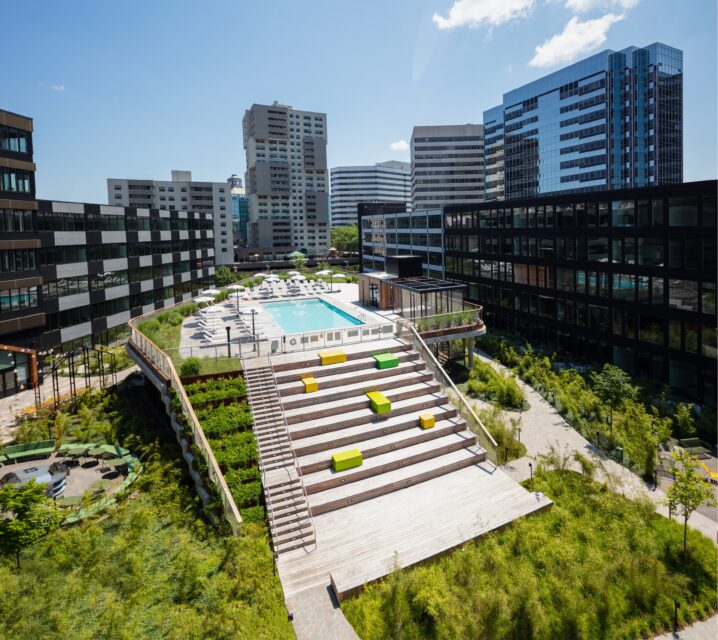
Photo: Urby apartments in Stamford, Connecticut

